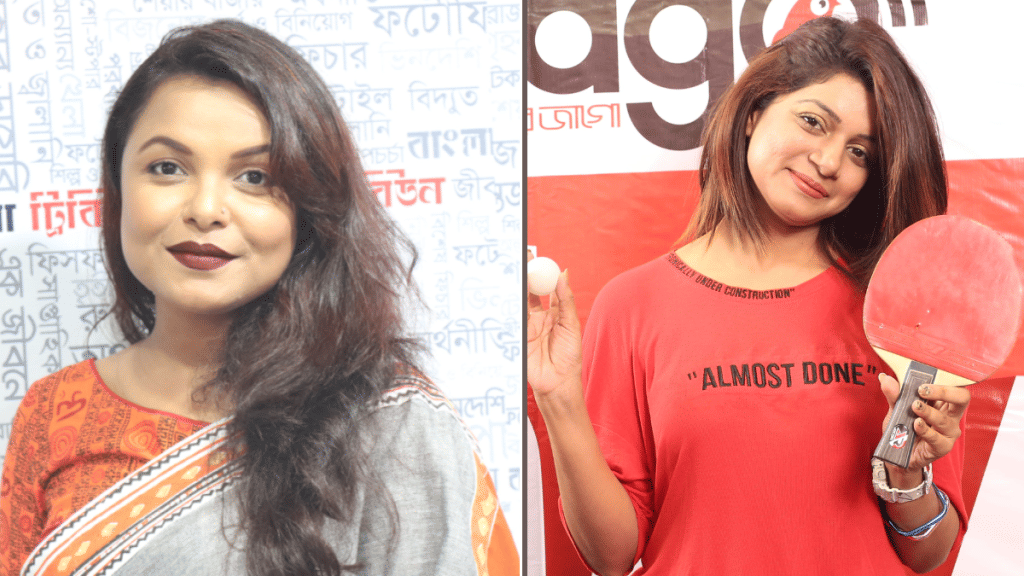Kolkata: The 31-year-old Bangladeshi artist had always loved painting her country’s riverine landscape, and then suddenly, that made her a target of abuse and death threats. Her artwork often featured boats, but to the people spewing vitriol at her, that was enough proof she supported deposed prime minister Sheikh Hasina’s Awami League—because its election symbol was the boat.
“I have nothing to do with politics. I did not paint boats to show support to any political outfit. But who would explain it to abusive trolls,” said the artist.
Filing a complaint was not an option for her, she said. Not when bookstalls are being destroyed and actors were being arrested for sedition simply for their purported ties to the Awami League
A new leadership that rose in protest against Hasina’s authoritarian excesses is now resorting to its own form of reprisal rule. The uprising that toppled Hasina last August was celebrated as a victory for democracy, a moment that would usher in a Bangladesh where freedom of speech, expression, and political opposition were no longer stifled. Instead, it has birthed a regime wielding the same weapons of repression.
Under Nobel laureate Muhammad Yunus, Bangladesh has seen coordinated attacks on minorities, the hounding of Awami League supporters, and a crackdown on dissenters. Operation Devil Hunt, ostensibly meant to arrest those causing unrest, has turned into a purge of anyone suspected of disloyalty.
In November, police picked up actor Shomi Kaiser from her Dhaka home in the middle of the night—no charges specified. A former president of the e-Commerce Association of Bangladesh and involved in Awami League politics, she is the daughter of ‘disappeared’ novelist Shahidullah Kaiser and former party MP Panna Kaiser. It’s since been reported that she was accused of attempted murder after a person was injured during the movement against Hasina.

On 10 January, actor Nipun Akter was barred from boarding a London-bound flight from Sylhet Osmani International Airport. A former general secretary of the Bangladesh Film Artistes’ Association, she was stopped by immigration police on instructions from intelligence agencies, The Daily Star reported.
“Nipun’s unexpected travel restriction follows her involvement in political activities and close association with influential figures within the Awami League,” the report said.
In February, actors Meher Afroz Shaon and Sohana Saba were detained and interrogated for anti-state conspiracy.
There’s now a climate of fear among artists.
The artist who was attacked online had painted boats for over a decade in Barisal, on the banks of the Kirtankhola River—moored on the banks or steered along streams by local boatmen. She had resisted family pressure to settle into an arranged marriage, instead making a career for herself by posting her work on social media, where buyers could contact her directly. Now, many of the comments against her were focused on her interfaith relationship with a Hindu playwright.
“I had thought of lodging a police complaint. Then I changed my mind and deleted my social media accounts instead,” she said. Pressure from her family to get married and settle into a more conventional life is mounting.
“You can’t paint, or act, or write while perpetually looking over your shoulder,” she said. “It is not safe to push the envelope any more with art.”
Also Read: Hasina’s Houses of Horror to Yunus’ Devil Hunt – is Bangladesh truly changing for better?
Vigilante groups on a rampage
It is not just artistes considered close to the Awami League who are under attack.
On 10 February, chaos erupted outside the Sabyasachi publication stall at the Amar Ekushey Book Fair in Dhaka as a mob gathered to protest the sale of books by exiled Bangladeshi writer Taslima Nasreen.
She has long been critical of the Awami League and has accused Hasina of throwing her out of the country to appease Islamic radicals post her 1993 novel Lajja, which addressed the targeting of Hindus in Bangladesh. But this time, Nasreen’s new book Chumbon (Kiss) became the flashpoint.
A scuffle broke out when a group of agitators from the fundamentalist group Tawhidi Janata started protesting at the stall and vandalised it. Also present was writer and publisher Shatabdi Vobo, who reportedly countered by calling them militants and chanting ‘Joy Bangla’. The police then hauled away the publisher and the stall was later covered with tarpaulin.
Yesterday, at the book fair in Bangladesh, my publisher, Shatabdi Vobo, was attacked by jihadists. His crime was publishing and selling my books pic.twitter.com/Dh0O7fjdZh
— taslima nasreen (@taslimanasreen) February 11, 2025
Reacting to the incident, Nasreen said those who had threatened to destroy the stall and kill the publisher and writer should have been arrested.
“Instead, the authorities have asked the publisher to remove my book from the fair. The terrorists will remain, but the book will be removed—this is the justice of pro-extremist authorities,” a report quoted her as saying.
The crackdown on cultural spaces has been growing. Last month, BBC Bangla reported that the Dhaka Mahanagar Natya Utsav—a theatre festival—was cancelled amid protests. This came just a day after another major annual cultural festival in Dhaka, Basanta Utsav, was scrapped. The organisers said they had to cancel this time due to “external pressures”.
Both festivals, the BBC report pointed out, coincide with the celebration of the Hindu festival Pahela Phagun and Valentine’s Day. It also noted that several cultural activities have been cancelled across Bangladesh since the fall of the Hasina government on 5 August. In most cases, the vigilante group Tawhidi Janata has allegedly been at the forefront.
Also Read: Yunus has done the impossible in Bangladesh—brought arch-rivals Awami League and BNP closer
‘A culturally dead nation’ in the making?
There is a growing perception in Bangladesh that the Yunus government is either unwilling or unable to stop the cultural backsliding taking place.
In a 20 February editorial, Dhaka Tribune warned that extremist groups like Tawhidi Janata had re-emerged with the intent of dragging the country back into the dark ages. It also criticised the interim government for failing to act, saying that while officials had been quick to issue warnings to such groups, they had done little to curb the rise of mob violence.
“Time and again, the interim government has proven itself utterly incapable when it comes to reining in extremists who now feel emboldened to carry out their intolerant and regressive agendas,” it said, adding that the “void in comprehensive law enforcement” had let to a rise in crime.
With each festival cancellation, mob attack, and detention, the message only becomes clearer—culture, art, and dissent will be policed or stamped out.
Bangladeshi writer and commentator SM Faiyaz Hossain told ThePrint he sees little hope for artists in today’s Bangladesh.
“Art cannot survive when free speech has been curtailed. A culturally dead nation can only import calligraphy, while stubbing out all art and cultural activities,” he said.
For the painter who no longer paints boats, leaving the country is the only option left.
“My cousins are settled in different parts of Europe. I have been in talks with them for the past few months to explore options there,” she said. “If I leave, I will miss Bangladesh terribly, but at least I will be able to paint boats with getting death threats.”
(Edited by Asavari Singh)






